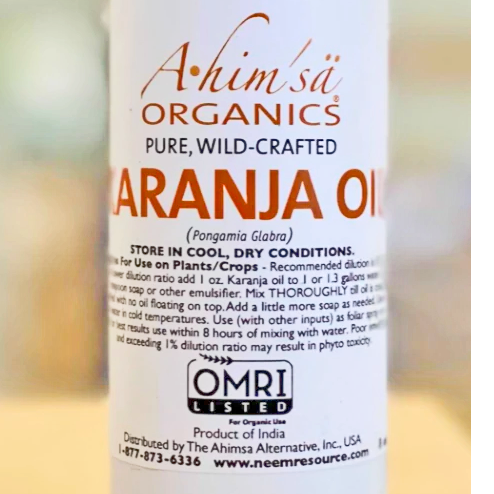Karanja Oil In The Garden
 Karanja oil is effective as both a pesticide and an antifungal agent for plants. Extracted from the seeds of the Pongamia pinnata tree, Karanja oil contains several bioactive compounds, including flavonoids and fatty acids, that have insecticidal, nematicidal, and antifungal properties.
Karanja oil is effective as both a pesticide and an antifungal agent for plants. Extracted from the seeds of the Pongamia pinnata tree, Karanja oil contains several bioactive compounds, including flavonoids and fatty acids, that have insecticidal, nematicidal, and antifungal properties.
Pesticidal Properties:
- Insecticide: Karanja oil is particularly effective against a range of pests, including aphids, whiteflies, and mites. It works by disrupting the growth and reproduction of insects and can be used as a natural alternative to chemical pesticides.
- Nematicide: The oil is also known to be effective against nematodes, which are microscopic worms that can damage plant roots.
Antifungal Properties:
- Fungicide: Karanja oil has been shown to inhibit the growth of various fungi, including those that cause powdery mildew, rust, and other plant diseases. It can be applied to both prevent and treat fungal infections in plants.
Usage/Mixing:
- Mix Karanja oil and soap nut soap at a ratio of 2;1 (Karanja Oil: Soap Nut Soap)
- Mix Oil and soap with water and spray plants before sunrise or after sunset as the oil droplets can burn leaves like a magnifying glass.
- Soak plant especially the under side of the leaves.
- Use this at the LAST moment before flowers develop as this mixture will melt trichomes.
Overall, Karanja oil is a valuable tool for organic gardening and sustainable agriculture, offering a natural and eco-friendly solution for pest and disease management.


